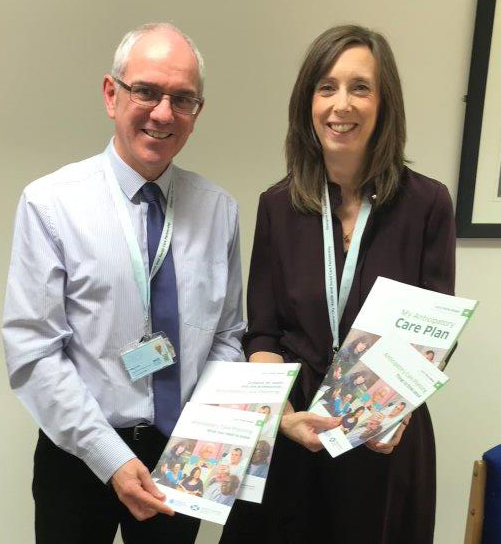Be Prepared - Developing Anticipatory Care Planning
In 2015-16, Glasgow City Health and Social Care Partnership used the Integrated Care Fund to develop an Anticipatory Care Plan (ACP) that could be used by people living with a long term condition or conditions that increased the probability of them being admitted to hospital or requiring urgent support.
The ACP keeps information that is important to the person in one place and in the event of a crisis can be shared by the person with relevant practitioners to inform the most effective care provision. A summary of that information can be shared with GPs and included in the Key Information Summary (KIS).
The idea behind ACPs is to encourage people to ‘think ahead’ and plan how they will self-manage their condition in a crisis (or prevent a crisis), identify who their key supports and contacts are and what their preferences are in the event of requiring hospital admission or admission to care.
The Glasgow ACP was launched in August 2016 and at that time, work started at a national level to develop a plan that could be used across Scotland. The Glasgow plan helped inform that development and a final product was launched in June 2017. The plan and associated practitioner guidance and information for the public can be found at ihub Scotland.
The web site provides access to printable ACPs, guidance documents and an app that can be downloaded to smartphones.
The Partnership Lead for Anticipatory Care, Paul Adams, Head of Older People’s Services (North West) said: “Health and social work staff have been using ACPs for over a year and are now just beginning to transition to the national format.” Paul noted that many people expressed concern about the size of the national plan, which is approximately three times that of the Glasgow version. This was to ensure that the good practice initiatives from across the country were incorporated into the tool.
It has to be emphasised that the ACP is owned by the person and not by the professionals or care-givers working with them. To that end, the plan will be informed via contributions by a range of people and will be continually updated by the person who owns the plan or their carer/family/advocate. I t is not intended that the plan be completed in one sitting.
Jean Blackwood, Service Manager, said: “The big challenge associated with ACPs is sharing the content. Until a single patient record is developed, we need to work across our various IT systems to gather information.”
Kirsteen Cameron, Practice Development Nurse, has been involved with anticipatory care work over the last few years and recently attended a 'digital enablement' workshop in Glasgow, which considered options for gathering, recording, sharing and reporting ACP related information using a variety of electronic and digital options.
In particular, the event demonstrated the Recommended Summary Plan for Emergency Care and Treatment (ReSPECT) process. The ReSPECT process is a UK initiative that has evolved to support ACP by prompting realistic shared decision-making to guide a person’s clinical care in a future emergency where they do not have capacity to make or express choices. Further information can be accessed at https://www.resus.org.uk/respect/

